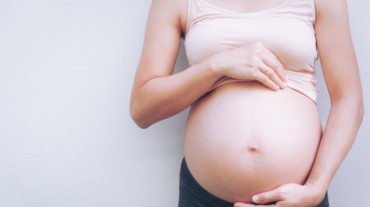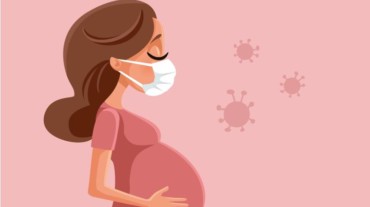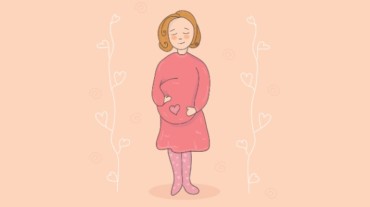
Pregnancy at any given point is a tough ordeal for moms-to-be. It’s not just discomfort that women have to fight during this time—it’s also anxiety about childbirth and becoming a mother. This year, however, new mothers are also grappling with another concern: covid-19.
When the pandemic first hit, the growing concern amongst pregnant women was whether they were at a greater risk and if they could give the disease to their foetuses. The consensus, however, indicated that expecting women (or their unborn babies) weren’t at a higher risk, and that ensuring social distancing and wearing a mask could keep them safe.
That was then. Today, we have evidence from a few studies that suggest that pregnant women are facing unique challenges during this pandemic. Here are few you must know about.

1. New evidence suggests that mothers can transmit covid-19 to their unborn babies
A case report in the Pediatric Infectious Disease Journal seems to suggest that the SARS-CoV-2 virus can be transmitted in the womb. The findings were based on the case of a covid-19 positive mother, who also had type-2 diabetes, and gave birth to a premature baby girl in the US.
A day after her birth, the baby girl started showing symptoms of covid-19, including shortness of breath and fever—and tested positive after 24 hours of birth.
This isn’t the first report to highlight how covid-19 can impact the foetus in the womb of a pregnant woman. Though these findings did indicate that somehow the virus was able to make its way through the placental boundary. By showing that coronavirus particles as well as the SARS-CoV-2 protein was found in the foetal cells of the placenta, the study was able to confirm that the infant contracted the virus in the womb and not during or after birth.
2. Breast milk might just carry the SARS-CoV-2 virus
In all fairness, the jury is still out on whether this is an exception or a rule. A study by the World Health Organization analysed the breast milk samples of 46 covid-positive women, and found that 43 of those samples were negative for covid-19. The remaining three tested positive for virtual RNA particles instead of the live virus.
The WHO maintains that:
At present, data are not sufficient to conclude vertical transmission of COVID-19 through breastfeeding.
Irrespective of whether or not breast milk can transmit the virus, the guidelines by WHO and CDC both indicate that new mothers with suspected or confirmed covid symptoms should wash their hands properly before breastfeeding and preferably wear a mask or a cloth covering to reduce the risk of transmission to their infants.
Select Topics of your interest and let us customize your feed.
PERSONALISE NOW3. Pasteurizing breast milk can kill SARS-CoV-2 virus
An interesting research from Toronto claims that pasteurizing breast milk for 30 minutes at 62.5 degree Celsius can kill the virus, making the milk safe to consume for infants.
The specific method of pasteurisation that the study mentions (and is used for donor human milk in breast milk banks) is the Holden method, in which the milk is slowly heated for 30 minutes at the required temperature and is then cooled immediately to avoid nutrient loss.
4. There still needs to be more research about how covid-19 affects pregnant women and their babies
All the data available to us right now about covid in pregnant women is, unfortunately, inconclusive. As health organisations like the WHO keep insisting that we need to learn to live with the virus as a cure might not be easily found, it is imperative that more research goes into how the virus travels in the body, especially during pregnancy.

Not to mention since the immune system does take a hit when you get pregnant, common knowledge dictates that it puts pregnant women at a unique risk of getting infected easily themselves and also making their unborn babies vulnerable.
In this scenario, it is essential that pregnant women take all the necessary precautions to keep themselves safe. Talk to your gynae about foods that can boost your immunity, wear a mask whenever you meet someone outside of your immediate environment, and avoid stepping out as much as you can. These are your and your baby’s best bets.